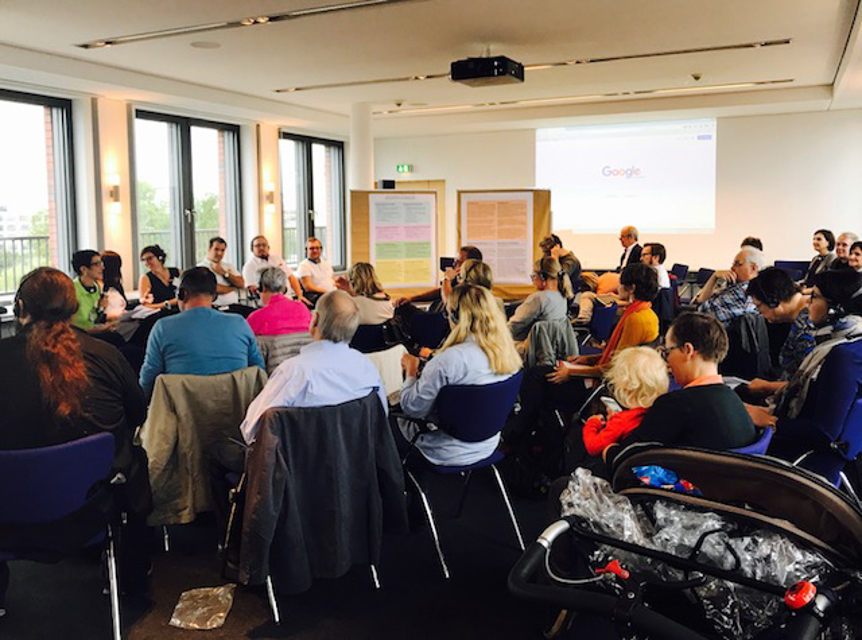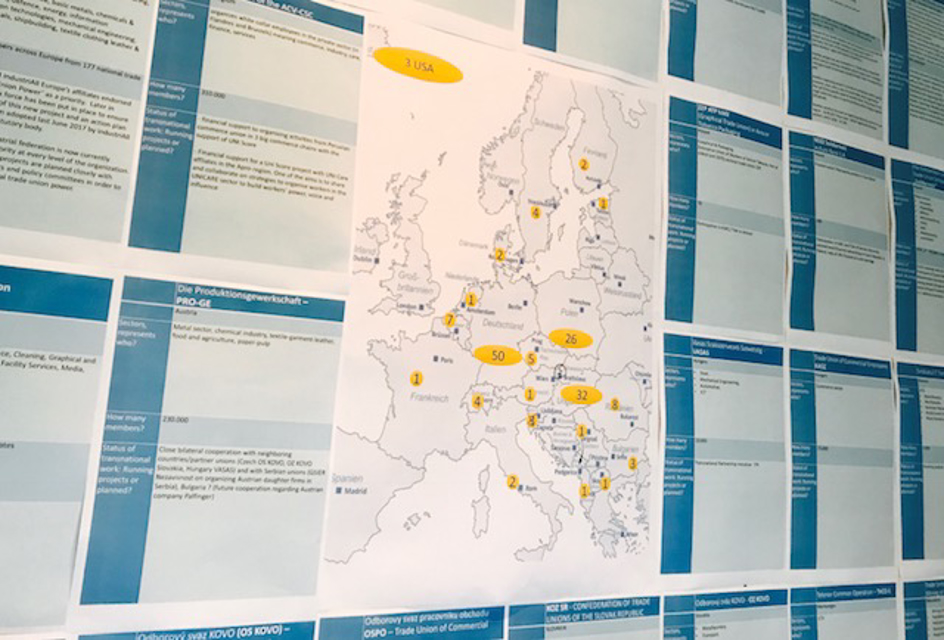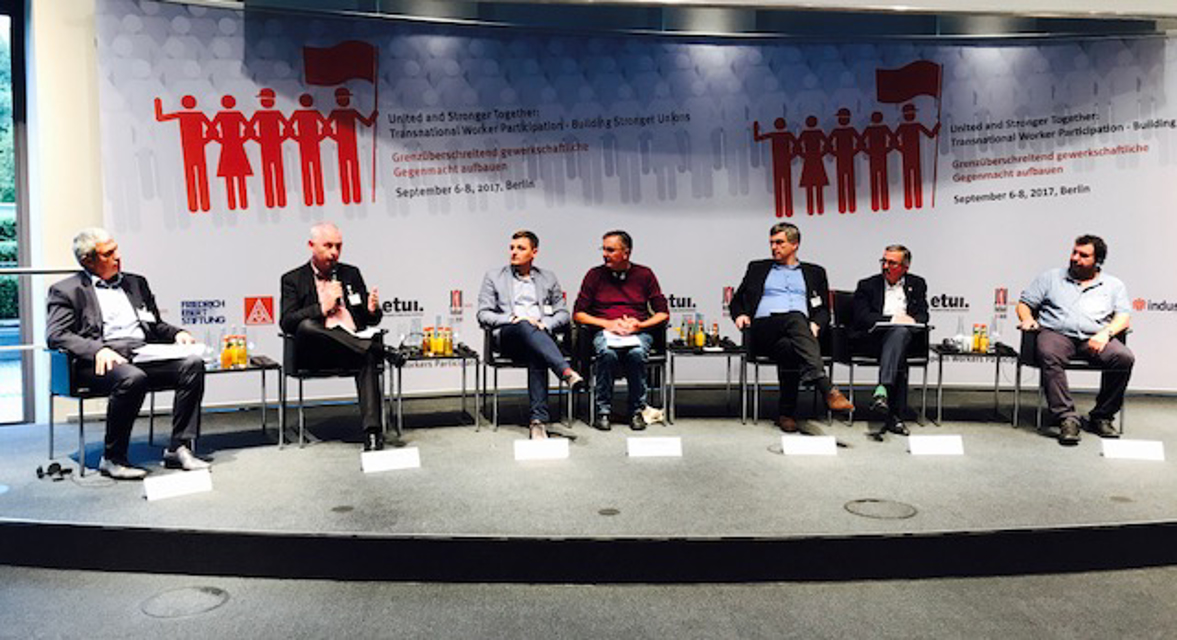Over the past couple of days, approximately 150 trade unionists coming from 20 different European countries gathered in Berlin to discuss and exchange views on successful transnational organising projects in Europe. This first-of-a-kind event takes place at a time when industriAll Europe has launched a wide array of activities aimed at scaling up its ‘Building Trade Union Power’ priority.
All of industriAll European Trade Union’s members acknowledged the need to build trade union power from the grassroots up. The organisation, recruitment and retention of members is a top priority for the national affiliates nowadays. As trade union rights have come under unprecedented attack from employers and governments as a result of the crisis and austerity policies, trade unions need to act to strengthen collective power. The growing number of companies establishing their operations and investments beyond international boundaries has increased competition and driven down working conditions. National trade unions’ responses alone are not sufficient - there is a need for joint transnational actions to organise companies in parts of Europe where trade unions suffer from weak collective bargaining structures, active union-busting and low support from the national legal system.
IndustriAll Europe supports affiliates through a variety of activities in their strategy to build up strong organisations, reclaiming lost ground and organising new groups of workers as well as developing capacity building, especially in countries and regions of Europe where trade unions are under-represented. From the coordination of transnational organising actions in multinational companies, to the fight for stronger and reinstated collective bargaining structures as part of the Pay Rise Campaign led by ETUC, the ‘Building Trade Union Power’ Action Plan adopted by industriAll Europe's Executive Committee last June embraces all the facets of the challenge to organising.
The Conference in Berlin demonstrated the current wave of increasing commitment by trade unions towards transnational organising. It focused on running transational organizing projects showcasing some good practices such as the successful organising in the IT sector in the region of Timisoara (Romania) or the joint activities of our affiliates IG Metall (Germany) and Vasas (Hungary) where workers start to organise and join trade unions. Panel discussions were held to give a comprehensive view of cross-sector trade unions’ planning approaches and methodologies. Furthermore, workshops were arranged to enforce and provide strong implementation expertise by lead organisers. All of the above set out to achieve one common goal - to build sustainable collective power across Europe to deliver better working conditions to our members.
“If we want to be successful in organising, we need to join forces and cooperate crossing borders. This conference is a starting point and the challenge has been taken up by trade unions from many different countries and sectors who are all working in the same direction: strengthening the role that trade unions play in society. This is a challenge we will have to engage in for the long run and I am confident that, in a few years’ time, we will be in a stronger position, where we will be able to showcase multiple organising success stories.” said Luc Triangle, Secretary General, industriAll European Trade Union.


